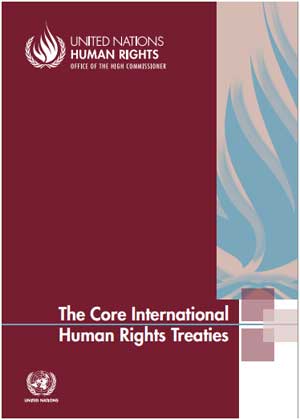Holding Transnational Corporations Accountable for Human Rights Abuses
GENEVA / LAGOS, Oct 16 (IPS) - In Geneva this week, a treaty process is underway that promises to usher in a new era for human rights around the globe.
The process—the intergovernmental working group on the binding treaty on transnational corporations and human rights—could mean that for the first time, human rights would be prioritized above corporate profits.

But the future of the agreement and human rights writ large will depend on whether governments can agree on a strong text this week.
Communities and governments have long struggled to hold abusive corporations and industries accountable.
These corporations which are sometimes wealthier than the countries in which they operate, have employed a series of tactics to escape accountability including hiding behind their supply chain, questioning jurisdiction, and in some cases even disputing the legal authority of individuals, communities, and governments have to hold them accountable in the first place.
This week's meeting is the treaty's fifth round of negotiations. Since its inception, the process has been met with opposition from many governments where major transnational corporations are based, including the United States and the European Union.
Corporate abuse and human rights violations have become all too familiar an occurrence, especially in communities of color, and especially in the Global South. Chevron's massive pollution of the Amazon region in Ecuador was staggering.
But to add insult to injury, the U.S. transnational corporation subsequently refused to pay the $9.5B judgment found against it by the Ecuadorian judicial system.
The 1995 summary execution of the Nigerian Ogoni Nine and the role Shell played in these crimes also remains shameful. Equally disturbing is the assassination of Berta Cáceres and four other Honduran activists fighting the construction of a dam financed by international financial institutions who for years claimed no culpability for the dam project's human rights abuses.
But if this treaty can tip the scales on these and other abuses around the world, all eyes must be on this week's process to expose corporate interference and the efforts of governments operating in bad faith.

Here are four things to pay close attention to:
- Attempts to water down the treaty:
After multiple attempts at holding global corporations accountable over the past few decades, governments have finally reached the phase of negotiating the text of the treaty. This is groundbreaking.
But as with any negotiation, the devil will be in the details. We must guard against any amendments to the draft text that would weaken its potential to hold transnational corporations accountable.
- Broadening the scope may sow confusion:
The latest draft has expanded the scope to include national-level businesses in addition to transnational corporations. Such a change could result in heightened political tensions among governments, and risks diluting the focus on regulating transnational corporations—which is the stated purpose of the 2014 Human Rights Council Resolution 26/9 that is the basis of this negotiation.
- Negotiating in bad faith:
The European Union has time and again tried to shut the process down and has stood in opposition of the treaty despite its own parliament's support for it. They will likely be joined in their opposition by industry trade groups such as the International Organisation of Employers and the International Chamber of Commerce (ICC), the ICC also being a well-known obstructionist in other U.N. Fora like the UNFCCC. Business organizations like the ICC represent some of the most abusive corporations in the world—including Dow, Chevron, and Shell—which have been implicated in serious human rights violations.
- A growing and unrelenting movement:
Civil Society will also be mobilizing broadly to make sure we have a robust process and a strong binding treaty. Watch for the efforts and interventions in particular of the Global Campaign to Reclaim Peoples Sovereignty, Dismantle Corporate Power and Stop Impunity (Global Campaign) and the Treaty Alliance. The Global Campaign's seven key proposals for a strong treaty are vital to ensure the text delivers what the world needs.
If successful, this week in Geneva will be a pivotal moment in upholding the primacy of human rights over corporate profits. It would be a lasting victory for the global movement to stop corporate abuse and would help foster a world in which all people can live up to their full potential and in harmony with earth's vital natural systems.
Footnote:
The United Nations (UN) Inter-governmental Working Group (IGWG) discussing a treaty on "transnational corporations and other business enterprises with respect to human rights,"(1) enters its fifth round of negotiations this week from 15-19 October at the UN Human Rights Council.
During this session, UN member states will negotiate the second draft of this ground-breaking treaty that aims to hold transnational corporations to account for their human rights violations.
Interest in this process continues to grows as evidenced in the significant presence of UN member states delegates, civil society and elected officials worldwide.
321 members of regional and national parliaments, as well as municipal authorities, have endorsed the Call of People's Representatives Worldwide for the UN Binding Treaty.
© Inter Press Service (2019) — All Rights Reserved. Original source: Inter Press Service

